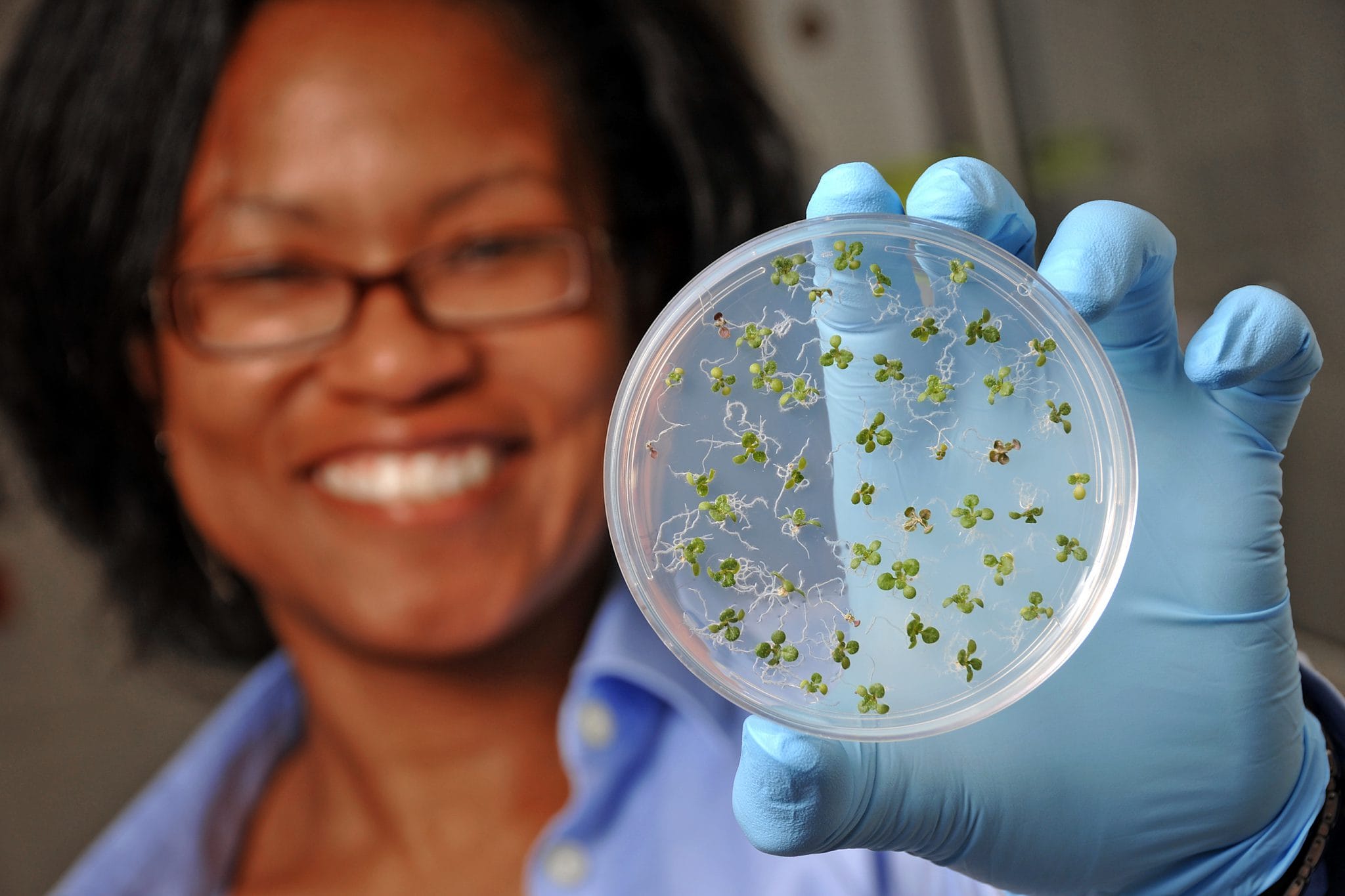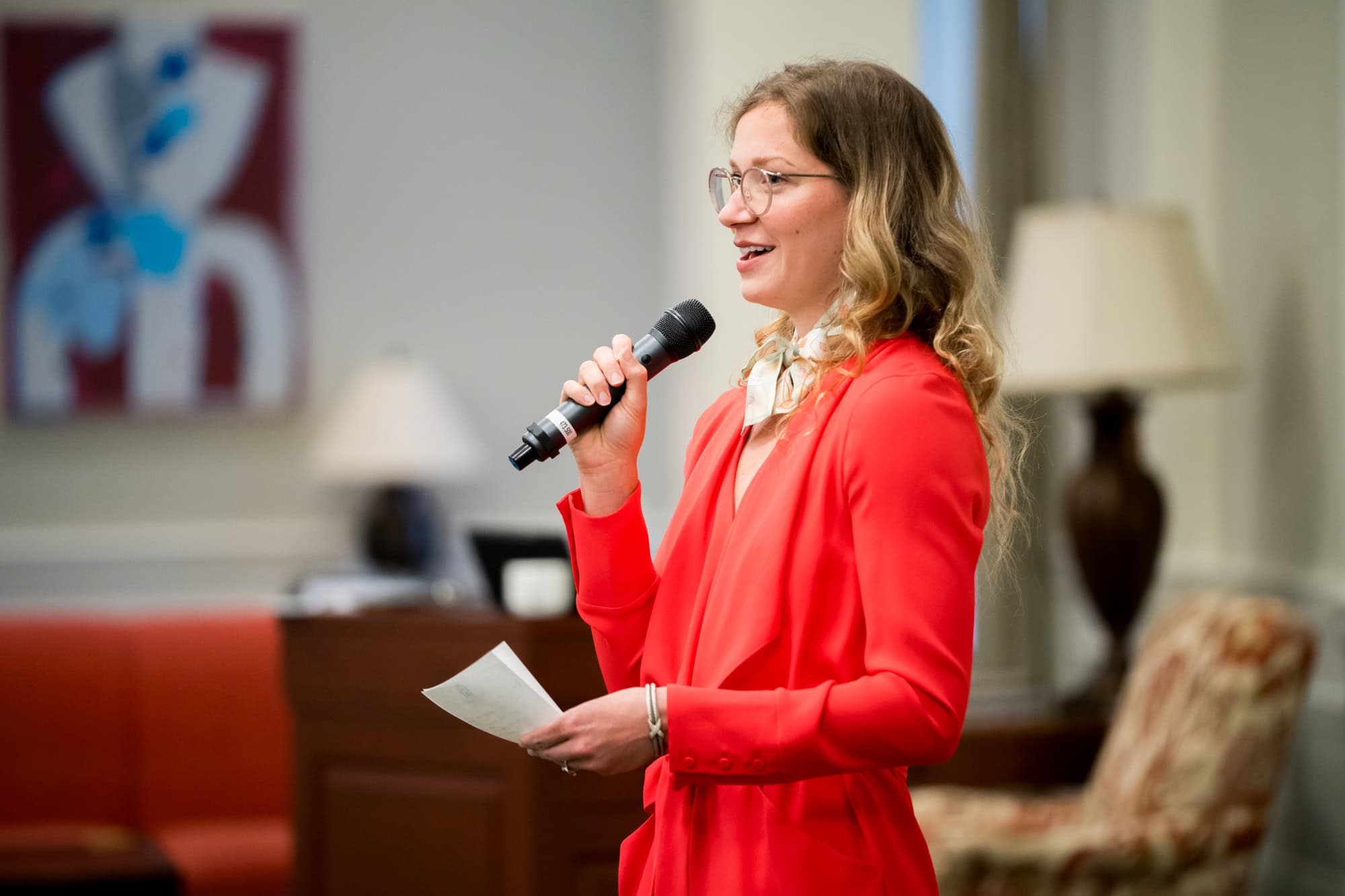Terri Long ’98, associate professor in molecular biology at North Carolina State University, says her career is rooted in her childhood home—a small farm in Louisburg, North Carolina.
“We had a big garden, and pigs,” she says. “I loved playing outside, and my dad used to take us around on nature walks. I developed a love for plants.”

Photo curtesy of Roger W. Winstead
In her second summer as a Morehead-Cain Scholar, Terri sought a field research role with a nature conservancy.
“I found myself on the side of a mountain, counting this rare plant species, and thought, ‘Maybe I’m not as outdoorsy as I thought I was.’” Terri laughs. “I still wanted to work with plants, but I thought maybe I should work in a lab instead.”
The following summer, she found a position working in a research lab, and liked it. She returned to campus with a new sense of direction, and started inquiring with various biology labs at Carolina.
“Jeff Dangl said I could work in his lab,” Terri remembers. “I didn’t know at the time that he was one of the premier plant pathologists in the country.”
Today, Terri oversees a lab at N.C. State University, researching the molecular genetic mechanism by which plants respond to iron deficiency for their own growth and development. In other words, she works to identify the genes that direct how a plant absorbs and uses nutrients.
For Terri, this research is innately interesting—but it also has implications for humans.
“From a long-term standpoint, I do it hoping we can to learn to produce plants that are more nutritious, and plants that can survive in nutrient-poor soils,” she says.
Thanks to the success of her work, she’s traveled across North America, down to Mexico, and to multiple countries in Asia and Europe to present at conferences.
The travel is fun, but it’s not always easy.
“Every time I go to conferences, I am often one of the few people of color in the room,” Terri says.
She actively works to change that, conducting a number of outreach programs to encourage minorities in science.
“The population in the U.S. is becoming more diverse every day. It is essential that we as scientists make an effort to train students from diverse backgrounds,” Terri says. “Everyone deserves an opportunity to learn about science and opportunities to be scientists. It behooves all of us to make an effort, reach out, and mentor someone who may or may not look like you.”
And Terri loves those mentoring relationships. She says the most rewarding part of her work is the daily opportunity to mentor students one-on-one. That, and the excitement of seeing her graduate students finish their doctorates.
Terri is a Tar Heel who completed postdoctoral research at Duke and is now employed by N.C. State. So, which university is her favorite?
“My heart is always at UNC,” she says without hesitation. “(N.C.) State pays the bills. Duke is where I cut my teeth. But my heart lies at UNC.
“Don’t tell my colleagues,” she laughs.
In honor of Black History Month, we’re publishing a series featuring four of our many remarkable black alumni. This is the second profile in the series.


